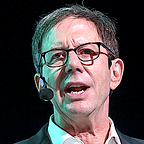Mending the Rift Between Science and Anti-science
As many of you, I observed the communication (including and especially the body language) between Dr. Fauci and President Trump as they became increasingly distant from each other during the early and middle phases of the pandemic.
In retrospect it seemed to parallel the rift between people who believe in and follow science and those who don’t believe in and appear to be anti-science, or at least highly skeptical and doubtful.
What is there about the communication between these polar opposites that pushes them further apart, rather than pulling them towards cooperation and collaboration?
Does it seem to you that many people are becoming increasingly agitated and even incensed when they perceive others as talking over, down or at them?
If you agree with that observation, does it also seem that there is a significant part of the population that feels intimidated and may even feel made to feel stupid and less than by science and scientists?
In other words, is it possible that when scientists are talking science that those who don’t understand it might feel they are being talked over, at and down to?
And since President Trump is clearly not a man of science, is it possible that he feared being exposed in public for his inability to understand, much less comprehend, what Dr. Fauci was saying with all its implications and data backed warnings?
If that was true, might he have discounted its importance as a way of minimizing the possibility that his lack of comprehension, understanding or even his ability to comprehend and understand would become patently and publicly obvious?
I bring that up, not to rehash something that we as a country are trying to move past, but to suggest that many of the anti-science people may be reacting to science and scientists similarly to the way President Trump increasingly reacted to — and then marginalized — Dr. Fauci.
If this is the case, what can be done to bridge the gap between science and anti-science?
The answer may start with scientists realizing they have more control over what and how they say something than they do over how it is heard.
If the scientific community is saying, “We are not talking over, at or down to anyone. We are merely sharing what the scientific data tells us,” they may not appreciate that the anti-science community might experience their sharing that data as if they are being talked over, at or down to.
The solution then may be how the scientific community can communicate in such a way that the anti-science group feels talked with instead of talked over, at or down to.
If the anti-science group felt talked with, they might be more willing to listen to what the scientists have to say.
How can scientists do that?
There is an observation when it comes to human communication, influence and persuasion, that oftentimes it matters less what you tell others than what you enable them to tell you that is holding them back from listening to you and considering what you have to say.
The way to do that is to respect that if the anti-science community is skeptical or cynical with regard to science, that there must have been an event or series of events that happened to them to cause them to feel that way.
If instead of focusing on and reacting to their anti-science stance as being irrational, the pro-science community would accept and believe that these are essentially good, decent and even intelligent people, but that something happened to turn them against science and then found out what that was, perhaps the anti-science group would self-discover the flaws in their thinking and be open to correcting them.
And if it turns out that their parents were mainly the ones who turned them against science, then what happened to their parents to cause them to feel that way?
In addition to validating how and why the anti-science came to feel that way, the scientific community can bare their necks and share times in their lives when as right as they thought they were, is as wrong as they turned out to be, and how embarrassing that was, such empathy and even compassion may further induce the anti-science community to reconsider their beliefs.
In closing, and addressing the scientific community, you do realize that there have been times in your lives when as right as you thought you were is as wrong as you turned out to be.
You do realize that… don’t you?
